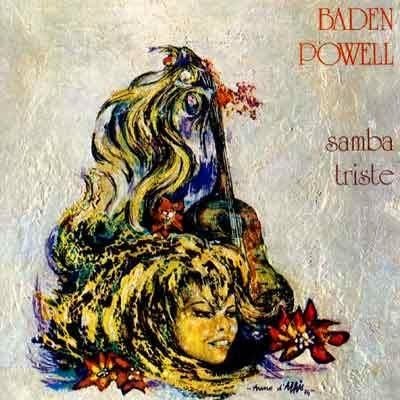His father, a scouting enthusiast,
named him after Robert Baden-Powell. When he was three, his family relocated to
a suburb in the city of Rio de Janeiro. The new surroundings proved profoundly
influential.
His house was a stop for popular musicians during his formative
years. He soon started guitar lessons with Jayme Florence, a famous Choro
guitarist in the 1940s. He proved a young virtuoso, having won many talent competitions
before he was a teenager. At age fifteen, he was already playing
professionally, accompanying singers and bands in various styles. As a
youngster, he was fascinated by Swing and Jazz, but his main influences were
firmly rooted in the Brazilian guitar canon.
He first achieved notoriety in 1959 by convincing Billy Blanco, who was an established singer and songwriter to put lyrics to one of his compositions. The result was called “Samba Triste” and very successful. It has been covered by many artists, including Stan Getz and Charlie Byrd in their seminal LP Jazz Samba.
In 1962, he met the poet-diplomat Vinicius de Moraes and began a collaboration that yielded some true classics of 1960s Brazilian music. Although Bossa Nova was the prevailing sound of the times, the partnership Baden-Vinicius wanted to transcend the form by syncretizing Afro-Brazilian forms such as Candomblé, Umbanda and Capoeira with Rio de Janeiro’s Samba forms.
He first achieved notoriety in 1959 by convincing Billy Blanco, who was an established singer and songwriter to put lyrics to one of his compositions. The result was called “Samba Triste” and very successful. It has been covered by many artists, including Stan Getz and Charlie Byrd in their seminal LP Jazz Samba.
In 1962, he met the poet-diplomat Vinicius de Moraes and began a collaboration that yielded some true classics of 1960s Brazilian music. Although Bossa Nova was the prevailing sound of the times, the partnership Baden-Vinicius wanted to transcend the form by syncretizing Afro-Brazilian forms such as Candomblé, Umbanda and Capoeira with Rio de Janeiro’s Samba forms.
“Samba Triste” was the first commercial success
for its composer, Baden Powell (1937-2000), who is still considered one of
Brazil’s greatest guitarists. Like Jobim, Powell wrote songs with the poet
Vinicius de Moraes – “Consolao” being one of their most famous – but Powell was
more focused on native Brazilian culture and his melodies are darker than Antonio
Carlos Jobim’s.
A very early Baden Powell in Europe with a trio playing Samba Triste


No comments:
Post a Comment